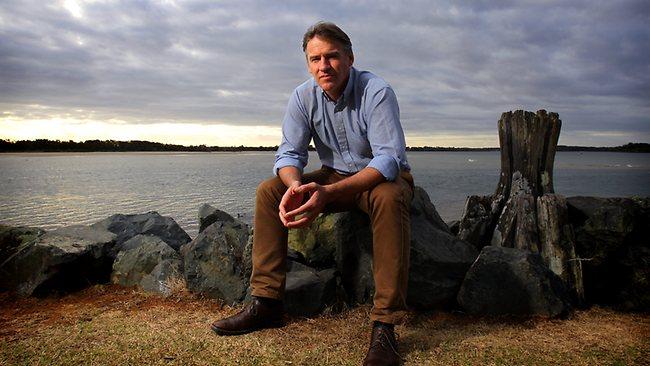Fund fight has 'kneecapped' system
A "CIVIL war" over funding is kneecapping tertiary education strategy, according to independent MP Rob Oakeshott.

A "CIVIL war" over funding is kneecapping tertiary education strategy, according to independent MP Rob Oakeshott, who says the government must consider bypassing the states and fund TAFEs directly.
The civil war involves Canberra withholding funds from TAFEs in response to state governments slashing spending and using federal money as "backfiller", but it leaves TAFEs "jammed at both ends", unable to sell uncompetitive facilities or get funds to modernise them.
Mr Oakeshott said in states where TAFEs had some autonomy, such as Victoria, the federal government should fund them directly. In other states, such as NSW, Canberra should channel funds through local councils and universities.
"I'm not advocating full-blown commonwealth takeover, but nor am I advocating that the commonwealth withhold money to the point of damage to the overall education strategy.
"TAFEs are in the middle of one almighty blue, and the only people who lose out of this are students," he said.
Mr Oakeshott said the federal government was withholding allocations from the $500 million regional round of the Education Investment Fund. This funding round, which was pivotal in securing the independents' support for the minority Gillard government in 2010, is one of the few pools of federal money open to both universities and TAFEs. But the nine grants announced so far, worth a combined $261m, have all gone to universities.
The government has also reneged on its 2011 in-principle approval of $74m towards a merger of Central Queensland's university and TAFE, citing concerns about the viability of the state's TAFEs.
Tertiary Education Minister Chris Evans has blocked the University of Canberra's plan to offer government-funded higher education places at Holmesglen TAFE in Melbourne, saying he would not authorise more subsidised places in TAFEs pending a review of higher education spending.
Grants under the government's key equity program, which funds university collaboration with TAFEs as well as schools and other organisations, have also been delayed. Although $44m was allocated to the partnership component of the government's flagship equity program last year, the grants have not yet been announced.
Mr Oakeshott said the government was also ignoring "discretionary" funding that would normally be available to prevent campus closures.
He said both levels of government were letting facilities go bust just to "prove a point". This included dozens of campuses and study centres in Victoria slated for closure and a proposal to close up to half of Queensland TAFEs in regional areas.
"These are weapons of war at the moment. A lot of students now have to find other ways to complete what they were doing, or don't get an opportunity to start. Overall, how does that help Australia?" Mr Oakeshott said.
Senator Evans wouldn't specify federal action being taken against the states, saying only that the government was "considering all our options".
But he said the government was not prepared to invest billions into TAFEs "only to see these dollars stripped out of the system by Liberal governments".
"The federal government is not interested in disadvantaging students, but state governments must be held to account for what they are doing to the country's training system," he told the HES.
For their part, the state governments say they've increased spending and haven't broken last year's agreement on training funding.
Mr Oakeshott said that while agreement with the states would be the "best way forward", Canberra needed to find ways to support pathways between vocational and higher education.
He said his coastal NSW electorate of Lyne exemplified TAFE's role in achieving the federal government's target for 40 per cent of young people to have degrees.
"We've got 12 per cent here and there hasn't been a traditional and cultural connection with universities. (My) region would be reflective of many where there isn't that university presence. TAFE is it, and TAFE is critical in driving these overall education outcomes."
He said North Coast TAFE had been instrumental in persuading three NSW universities to establish health and medicine education programs in Port Macquarie, supported by EIF grants worth $35m. But the TAFE was still "sweating" on its own $10m EIF application. "It would help if there was some certainty about the future," Mr Oakeshott said.



